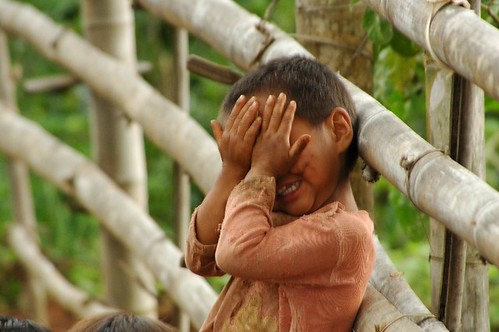On Forgotten Passwords, Book Warehouse Sales, and Blink
You know you've been gone too long, when your password eludes you.
Thankfully, it's the same as all the other passwords you've used, but it still eludes you. Why?
---------------
I was at that book warehouse sale at the Expo over the weekend, rummaging through piles of books (neat piles though, thanks to the Time temp staff), looking for that odd gem or two to bring home to read. It is sad to see, sometimes, that certain titles tend to keep showing up.
The books were spread out neatly on several tables, each helpfully marked with bright yellow cardboard cards - 'Fiction', 'Non-Fiction', 'Food', 'Children's Books'. Fiction has the most tables (naturally) but the selection of titles left me with something to ponder on.
For one thing, there seem to be too many copies of the following titles (you see them on more than 3 tables, they're appearing too often):
The Lake of Dead Languages - Carol Goodman
Blood Canticle (The Vampire Chronicles) - Anne Rice
Wolves of Calla (The Dark Tower Book 5) - Stephen King
There're several others, but I can't recall their names, nor the authors. The above were somewhat reasonably good book-moving names - Times the Bookshop probably over-rated their saleability, and ended up with excess stock. Pity - I have no beef with Anne Rice or Stephen King, but I guess in writing books with the intention of creating sequels, you tend to lose steam at some point.
I did bring home some books though - I found a copy of Thomas Keneally's Schindler's Ark, a couple of V.S. Naipaul gems, Susanna Orlean's Orchid Thief (made into Adaptation starring Nicholas Cage, go watch it!), this book titled 'Transistor Radio' (I read a couple of chapters once) and a book on gift ideas. Not a bad haul for cheap books, though it is kind of disappointing not seeing some of the more popular titles. Being a virgin book warehouse sales trawler, I went with the expectation that there might be Booker prize-winning titles there (and returned without any).
---------------
Do you know that having more information about a case or situation does not mean you necessarily make a better decision? (regarding the said case or situation that is).
I learnt recently that you've got to trust your intuition at times. That little unconscious part of the brain that compels you to feel a certain way or direct you to action; it acts quickly and unconsciously, and often, it is not wrong.
Of course there is the other tack - to analyse and gather as much information as possible, so that one makes an informed decision. I don't think having more information makes for better judgement (people call this analysis paralysis) - you can't very well conduct a meeting to decide on the appropriate course of action when in the midst of... well, fighting a fire for example. All you have are your instincts, and the ability to thin-slice.
Thin-slicing (nothing to do with potato chips) is one skill that comes with experience. The more you're exposed to analysing and making decisions in a certain field, the more you're able to come to quick decisions based on limited, but vitally more influential, factors.
Alas, what I've learnt is just that: it is good to trust your intuition. I never learnt how to develop that kind of intuition though (the bit about gaining experience doesn't count really... like some old guy telling you those 'when policemen wore shorts' stories).
Go read Blink (Malcolm Gladwell, now my favourite read) - you'll find a whole new way to see how thought works.


0 comments:
Post a Comment